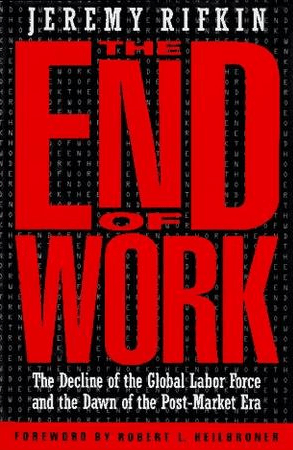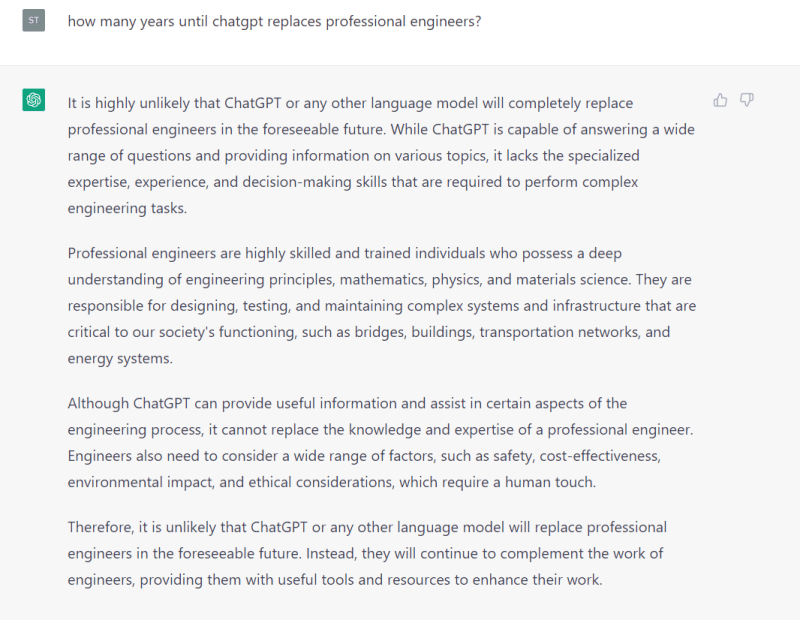thread507-459807
I'd like to reboot one of my favorite threads on this forum -- the one where Kootk explains how structural engineering is a trade and that the way that our business models work is by keeping early-stage engineers in the dark about the economics.
There's more to it, but that was one of my core takeaways. You can find the entire thread here and I'll bring in the core of the piece below for convenience.
I'd like to reboot this thread by:
[ol 1]
[li]Providing some background;[/li]
[li]Asking the $100k (USD) question, and;[/li]
[li]Asking for the contrary opinions and advice. [/li]
I'll also copy and paste a few of Kootk's points from 2019 for reference at the bottom.
[/ol]
Background
I'm a structural engineer in my late thirties practicing engineering in New York State. I have a bachelors and masters in Civil Engineering (Structures Focus), practiced at three dedicated structural firms (50 people, 3 people, 10 people) and a multidisciplinary engineering firm (150 people). I've worked on my fair share of projects and for the most part, generate successful outcomes in them. I'm a licensed PE and formerly an SE (I have the quals, but just let the license lapse).
I started questioning my own career path into engineering early on in the process. I started questioning how anyone actually chooses career paths. I mentored and shifted into education (teaching Civil Engineering and Construction Technology) to explore it more. I started a start-up devoted to understanding how professionals act and think in a local geography and use video, VR, and human networks to try to expose students to the career paths that surround them. I'm in this pot, stirring the stew.
$100,000 Question.
The best way to approach career discovery with the typical high schooler tends to start with money. Not starting salary money, but a number like $100,000/year (USD). If you ask a student if they'd like to learn more about local careers and pathways -- they don't say no, but they don't exactly sit up. If you ask them if they'd like to understand the ways they can make $100K within ten years of graduation, they do. The quality of the discussion tends to increase from there, but money (of course) is important.
There are lots of discussions about work life balance, curiosity, duty, earnings in middle and advanced ages, etc...that we could add in here. Pros understand burn out. Pros understand the common desire to shift paths and try something new, finances be darned.
Students do not however. And as an educator (and as one who has been "educated"), I'm mortified that the economics of engineering is not a cornerstone of our national curricula. I know why we "say" that we do not teach it (there is so much technical material that we have to teach) but the truth is, there is time and I don't think it's in firms (therefore our industry's) interest to do so.
I think we collectively feel (fear?) that if understand the economics, they'll shift. I say, if we don't tell them and they find out later - they'll shift anyway... at a great opportunity cost to nearly everyone involved.
Going back to, "Can a Structural Engineer earn a $100,000/year within ten years of high school?" I feel like the answer is no. Fifteen-twenty years, probably.
Construction Project Management? Yes. Many other skilled trades, possibly. But engineering, no.
Push Back
Is there anything about that understanding that is inaccurate? If you're in a class full of high schoolers or college students, what do you say? What should you say?
I'm literally asking. Because as I make more career discovery content - I feel like the heavy equipment operator pathway is getting more love than the PE/SE with Two Degrees Pathway. At least to an 18 year old.
As a thirty-eight year old, I like having the club in my bag. Because I know that clients aren't just paying for product - they're paying to have someone take uncertainty away and they like doing so by someone they know and like. I also know it becomes a different way to make a $100K, which may be more appealing as we age.
But again, I'm focused on the question of what should we say to students?
--
Here's a few excerpts from the 2019 thread which I think resonate. The thread overall is great of course, here's two of Kootk's points.
And...
I'd like to reboot one of my favorite threads on this forum -- the one where Kootk explains how structural engineering is a trade and that the way that our business models work is by keeping early-stage engineers in the dark about the economics.
There's more to it, but that was one of my core takeaways. You can find the entire thread here and I'll bring in the core of the piece below for convenience.
I'd like to reboot this thread by:
[ol 1]
[li]Providing some background;[/li]
[li]Asking the $100k (USD) question, and;[/li]
[li]Asking for the contrary opinions and advice. [/li]
I'll also copy and paste a few of Kootk's points from 2019 for reference at the bottom.
[/ol]
Background
I'm a structural engineer in my late thirties practicing engineering in New York State. I have a bachelors and masters in Civil Engineering (Structures Focus), practiced at three dedicated structural firms (50 people, 3 people, 10 people) and a multidisciplinary engineering firm (150 people). I've worked on my fair share of projects and for the most part, generate successful outcomes in them. I'm a licensed PE and formerly an SE (I have the quals, but just let the license lapse).
I started questioning my own career path into engineering early on in the process. I started questioning how anyone actually chooses career paths. I mentored and shifted into education (teaching Civil Engineering and Construction Technology) to explore it more. I started a start-up devoted to understanding how professionals act and think in a local geography and use video, VR, and human networks to try to expose students to the career paths that surround them. I'm in this pot, stirring the stew.
$100,000 Question.
The best way to approach career discovery with the typical high schooler tends to start with money. Not starting salary money, but a number like $100,000/year (USD). If you ask a student if they'd like to learn more about local careers and pathways -- they don't say no, but they don't exactly sit up. If you ask them if they'd like to understand the ways they can make $100K within ten years of graduation, they do. The quality of the discussion tends to increase from there, but money (of course) is important.
There are lots of discussions about work life balance, curiosity, duty, earnings in middle and advanced ages, etc...that we could add in here. Pros understand burn out. Pros understand the common desire to shift paths and try something new, finances be darned.
Students do not however. And as an educator (and as one who has been "educated"), I'm mortified that the economics of engineering is not a cornerstone of our national curricula. I know why we "say" that we do not teach it (there is so much technical material that we have to teach) but the truth is, there is time and I don't think it's in firms (therefore our industry's) interest to do so.
I think we collectively feel (fear?) that if understand the economics, they'll shift. I say, if we don't tell them and they find out later - they'll shift anyway... at a great opportunity cost to nearly everyone involved.
Going back to, "Can a Structural Engineer earn a $100,000/year within ten years of high school?" I feel like the answer is no. Fifteen-twenty years, probably.
Construction Project Management? Yes. Many other skilled trades, possibly. But engineering, no.
Push Back
Is there anything about that understanding that is inaccurate? If you're in a class full of high schoolers or college students, what do you say? What should you say?
I'm literally asking. Because as I make more career discovery content - I feel like the heavy equipment operator pathway is getting more love than the PE/SE with Two Degrees Pathway. At least to an 18 year old.
As a thirty-eight year old, I like having the club in my bag. Because I know that clients aren't just paying for product - they're paying to have someone take uncertainty away and they like doing so by someone they know and like. I also know it becomes a different way to make a $100K, which may be more appealing as we age.
But again, I'm focused on the question of what should we say to students?
--
Here's a few excerpts from the 2019 thread which I think resonate. The thread overall is great of course, here's two of Kootk's points.
Kootk said:START KOOTK's DEFINITION OF A PROFESSION
As humans toil away, I propose that they get paid for two things:
1) The effort/labor that they put into producing their product, on a product by product basis.
2) The requisite knowledge that a practitioner must posses in order to successfully product their product.
A profession is work where compensation is dominated by knowledge rather than effort.
A trade is work where compensation is dominated by effort rather than knowledge.
Some applications of this definition.
3) Landscapers (my son last summer). 5% knowledge; 95% effort. Trade (or unskilled trade I suppose). Bodies functioning as machines.
4) The Plumber that fixes my dishwasher. 30% knowledge; 70% effort. Trade (skilled).
5) Surgeon that replaces my pacemaker. 95% knowledge; 5% effort. Profession.
6) Structural engineer?? I would say 30% knowledge; 70% effort. Trade (skilled).
But wait? Didn't I go to school for six years to get my masters? Didn't I take a dozen arcane licensing exams to prove my worth? Yeah, you did. But remember that we're not talking about what you had to do to be able to legally practice structural engineering. Instead, we're talking about what your actually getting paid for when your client contracts for your services. I submit that we're mostly getting paid for effort. In a way, structural engineering is a particularly cruel form of a trade. Imagine if plumbers had to endure six years of post secondary and endless post graduation exams and professional development?
END DEFINITION
And...
Kootk said:Yes, issues with schedules, fees, and quality are the day to day nuisances. But, then, why do these things bother me really? All that just falls under the umbrella of "work", right? For me, these things are bothersome because they put me at odds with my own integrity almost constantly. Since we're talking big threes:
1) If an alien landed on earth and read all of our codes and design guides, they would have one impression of what structural engineers should be doing in regard to detail and rigor in design. Then, if they observed what practicing structural engineers actually do, they'd be horribly disappointing and confused. We take shortcuts. And lots of them. In fact, this is one of the first difficult lessons that new structural engineers must learn in a hurry. For me, this discrepancy between what I feel that I should be doing and what I'm actually doing is a challenge to my integrity. I tell the world that I'm delivering one product in terms of rigor and safety and then I turn around and deliver something quite different. I'm lying to the world in this respect.
2) As pointed out above, we have to commit to very aggressive schedule in order to keep winning work. This inevitably leads to agreeing to unrealistic schedules that give little account to reasonable contingencies. Yet I agree to these schedules because I feel that I have to to survive. This is me knowingly committing to delivering something that I know that I often wont be able to deliver. This is me lying to my clients and fellow project participants.
3) It is the low paid efforts of junior engineers that make our business model go 'round. Since most structural engineers get into the game to satisfy their inner nerd, the only way to keep such engineers motivated is to perpetuate their misunderstanding that society places a high value on the activity that is structural design. As a senior structural engineer, I'm guilty of this on a near constant basis. You can't very well motivate a junior by telling them "the only way to make any money at this is to get out of design and into management or sales as fast as you can". Again, this is me lying... now to junior engineers.
As structural engineers, we like to facetiously toss around the concept that we lose sleep over our work. You know, stuff falling down and crushing baby carriages etc. The truth is that none of that costs me any sleep. What does cost me sleep is my being constantly at odds with my own integrity as I've described. I think that a practicing structural engineer would actually be well served by some degree of sociopath in this respect. And, indeed, I know of some mild sociopaths that are wildly successful in structural engineering and make it look easy.






